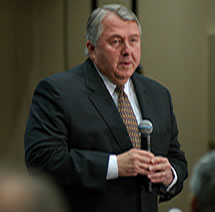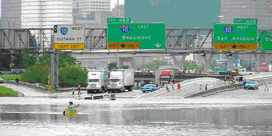How to handle campus crises in the digital age
Pepperdine University President Andrew Benton told higher-education officials March 7 in Washington, D.C. that they should be wary of contact with journalists covering campus emergencies such as fires…

